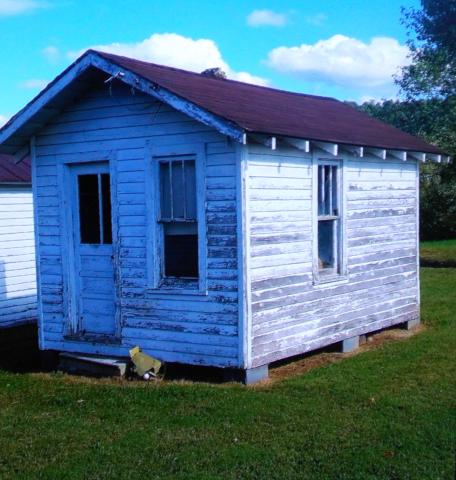Remembering Clifford Steiner
It was a dark and stormy night, as Snoopy would say, when a young Terry Miller first tried his hand at driving, thanks to his uncle Clifford Steiner.
Twelve-year-old Miller was out for a ride-along from Maynardville to Caryville and back with Steiner when the older man became too sleepy to continue the drive. In a heartbeat, Steiner decided Miller was old enough to transition from passenger to driver. This began a lifetime of adventures for Miller with his uncle Clifford and he has never looked back.
Union County native Clifford Steiner was an adventurer, but according to Miller, he was so much more.
“Uncle Clifford loved a challenge,” said Miller. “He inherited the family trait of honesty and was extremely straightforward.”
Miller told a tale of how the Steiner family would support revenuers and often fed the men before directing them to illegal moonshine stills. Inheriting the honest gene, Steiner served in the State Assembly during the 1960s and wanted to stop the lobbyists when he became aware of bribes and money passing hands.
A licensed pilot, Steiner is credited with starting the first newspaper in Maynardville, the first theater and developing the first airstrip. Miller’s memory of the first time he was set to fly with Steiner is not necessarily a good one, but humorous.
“My wife Patsy and I were at the airstrip in Maynardville waiting for Uncle Clifford to fly in,” said Miller. “We watched him crash the plane as he was landing. He wasn’t hurt and the next time he invited us to fly we went with him anyway.”
Miller related Steiner’s employment at the Chicago World’s Fair in 1933. Steiner worked at the fair in numerous positions but the one he talked about most was when he was responsible for alerting Mickey Rooney for his stage call.
While in Chicago, Steiner was diagnosed with tuberculosis and advised to check into a sanatorium. He refused stating, “I will beat this.” To help in that respect, Steiner chose a small piece of land on his parent’s property and built a miniature house.
“He built a tiny house before tiny houses were popular,” said Miller’s wife, Patsy.
Steiner surrounded himself with books and stayed cloistered in the one room house for more than a year. His mother would bring meals and leave them outside the door. Steiner would leave the house only to go to the outhouse and then go right back. Miller remembers the time well.
“I was just a kid and I missed my uncle. When I would go visit my grandparents I would walk by Uncle Clifford’s window and wave to him for that year he spent alone. But he said he would beat it (tuberculosis) and he did.”
Soon after Steiner received a clean bill of health, he married and brought his bride to live in the tiny house while he built his second home for the two of them. Steiner had no college education but according to Miller was blessed with common sense. Learning as he worked, Steiner went on to build more than ten houses in Maynardville and Knoxville. Most are still standing; including the original tiny house on Main Street.
Not one to remain idle, when Steiner was denied admission to the military because of the tuberculosis, he decided to start a forty seat movie theater in Maynardville. Steiner often traveled to the original site of Oak Ridge National Laboratory during WWII to show movies since workers and residents there had to stay on-site.
He went on to build five more theaters, including the drive-in theater in New Tazewell. All of the theaters thrived during WWII but none remain open today. The drive-in stayed in business the longest, closing a few years ago. The original theater building on Main Street in Maynardville was built by Steiner and is still standing, as is the original Maynardville post office, also built by Steiner. The printing press for the newspaper still holds down the floor in the basement of the old theater.
Miller, also a licensed pilot, recalled one of the first times he flew out of Tennessee alone.
“I needed to make a round trip flight and I was nervous. I had no idea until I landed back home that Uncle Clifford had followed me in his plane all the way there and back.”
Miller says that in later years when he flew with Steiner, cars were traveling at speeds up to and over sixty miles per hour.
“In the small planes it took three hours to fly to places that we could have driven in two. But it was all about the fun and adventure.”
Miller says he has only one regret when it comes to his uncle Clifford
“I was working in banking when he told me he was going to drive to Alaska and wanted me to go along to help with the driving. It was a five thousand mile drive and would take about a month.”
Miller says the offer came at a time when he didn’t think he could afford to be absent from work for that length of time.
“If I had it to do over again I’d go just to have spent the time with him. There has never been a man quite like Clifford Steiner.”
Clifford Steiner passed at the age of eighty-four after a bout with cancer. He was born and is buried in Sharps Chapel.
- Log in to post comments
